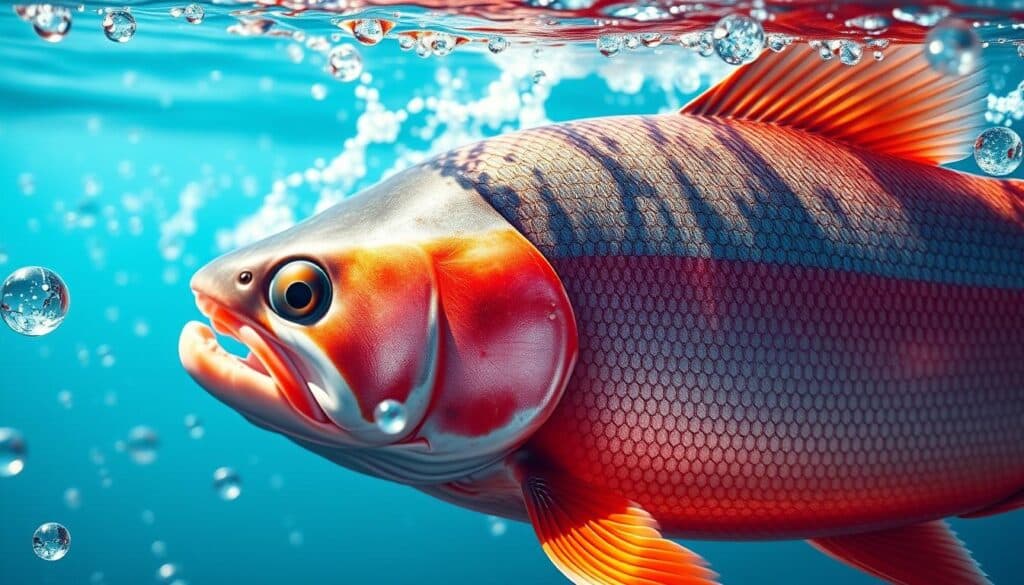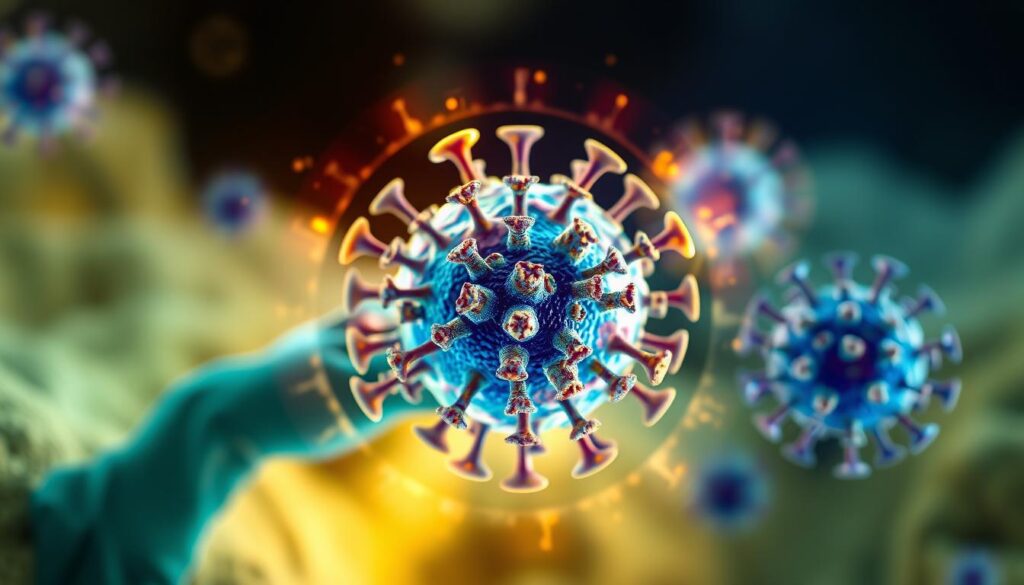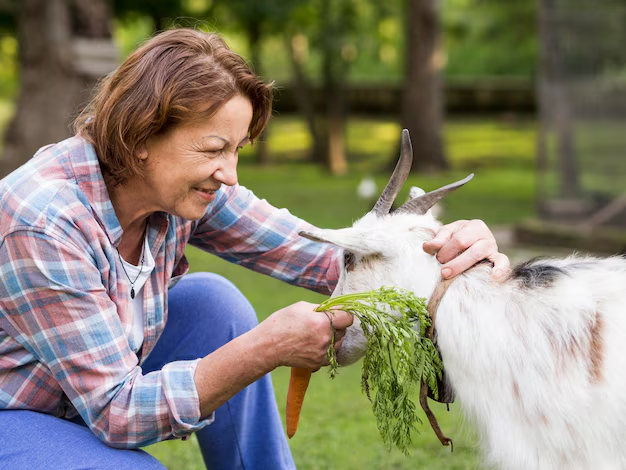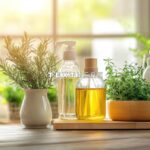Proper animal skin care is key for our pets’ health. The skin and coat are the biggest organs in dogs and cats, making up 10% to 15% of their body weight. Since they don’t sweat, their skin and coat help keep them cool and prevent water loss.
Regular grooming and preventive care offer many benefits. These include better pet health, a shinier coat appearance, and better disease prevention. Knowing how animal skin works helps pet owners keep their pets’ coats healthy and prevent skin problems.
Key Takeaways
- The skin and coat account for 10-15% of a pet’s total body weight, making it the largest organ.
- Proper skin care is essential for regulating temperature and preventing water loss in pets without sweat glands.
- Regular grooming and preventive measures can improve overall pet health, coat appearance, and disease prevention.
- Understanding the structure and function of animal skin is crucial for implementing effective skin care practices.
- Maintaining a healthy coat can signal a pet’s vitality and overall well-being.
Understanding the Fundamentals of Animal Skin and Coat Health
Animal skin is a complex and vital organ that protects against environmental stressors. It has three layers: the dermis, epidermis, and hypodermis. The dermis has sebaceous glands that make sebum, a natural oil that keeps the skin moist. The epidermis produces keratin, a protein that keeps moisture in and protects the skin.
The Role of Natural Oils and Sebum
Natural oils and sebum are key to a healthy coat. They act as a protective barrier, keeping moisture in and preventing dryness. Enough sebum keeps the skin soft and the coat shiny.
Importance of the Protective Barrier
The skin’s main job is to protect the animal from harm. It keeps out chemicals, pollutants, and extreme temperatures. It also helps control body temperature and senses heat, cold, pressure, and pain, ensuring the animal’s health.
“Proper skin care is essential for the overall health and well-being of our furry companions. Understanding the fundamental structure and function of the skin is the first step in providing the best possible care.”
Essential Nutrients for Healthy Skin and Coat Maintenance

Keeping animals’ skin and coats healthy needs a balanced diet. Important vitamins, minerals, and fatty acids help a lot. They make skin flexible, shiny, and fur healthy. Knowing what your pet needs helps them stay vibrant and strong.
Protein is key, as dogs use up to 35% of their daily protein for skin and fur. Omega-3 and omega-6 fatty acids from fish and plants make skin and fur shine. Zinc is also vital, as without it, skin problems can occur.
- Biotin and B vitamins help hair grow and fur shine.
- Vitamins A, E, and antioxidants from fruits and veggies help skin heal and fight off stress.
Good pet food usually has all the needed nutrients. But, bad food or homemade diets can cause dull fur and skin problems. Supplements like omega-3 fatty acids can help when needed.
“Proper nutrition is fundamental for maintaining a healthy coat and preventing skin issues in animals.”
Knowing what nutrients are important helps pet owners choose the right food and supplements. This ensures their pets look vibrant and healthy.
Animal Skin Care: Prevention and Protection Benefits

Proper animal skin care is more than just grooming. It’s key for disease prevention, protecting the environment, and keeping animals cool. Keeping an animal’s skin and coat healthy helps protect them from many problems.
Disease Prevention Through Regular Care
A healthy skin and coat are essential for an animal’s immune system. Regular grooming keeps dirt and parasites away. This stops infections and diseases from happening.
Fleas and ticks can spread serious illnesses like Lyme disease. Heartworm is deadly if not treated. So, keeping the skin clean is very important.
Environmental Protection Factors
An animal’s coat does more than keep them warm. It also helps control hydration levels. This is vital for pets that can’t sweat, like cats and some dogs.
Good skin care keeps the coat healthy. This helps animals adjust to different environments and temperatures.
Temperature Regulation Benefits
The skin and coat are key for thermoregulation. They help animals stay at a stable body temperature. A well-groomed coat keeps warm air in during cold weather.
It also helps cool down in hot weather. So, a healthy coat is important for staying comfortable in any weather.
Knowing the benefits of regular skin care helps pets stay healthy. It ensures they can handle different environments and stay well.
Natural and Traditional Approaches to Animal Skin Care

Pet owners are looking for better, greener ways to care for their pets. They’re turning to traditional animal-based skincare products. These products, made from tallow, are packed with nutrients from beef fat. They help keep pets’ skin and coats healthy.
Tallow has been around for ages, used in many cultures for its skin benefits. It’s full of good fats, vitamins, and antioxidants. These help keep the skin strong, moist, and shiny.
More pet owners are making their own skincare for their pets. They use sustainable practices and tallow to create creams and balms. This way, they can tailor the care to their pets’ specific needs.
| Holistic Skin Care Ingredients | Benefits |
|---|---|
| Grass-fed Tallow | Restorative fatty acids, vitamin A, and antioxidants |
| Emu Oil | Mimics the skin’s natural oils, reduces inflammation |
| Honey | Antibacterial, enzymatic exfoliation, and moisture locking |
| Beeswax | Creamy texture, moisture-locking, and antibacterial properties |
| Bone Broth | Improves gut health, boosts immunity, and balances hormones |
Using tallow-based products and making your own skincare is a natural way to care for pets. It helps them stay healthy and happy.
Also Read: The Best Natural Remedies For Dog Allergies You Need To Know
Conclusion
Keeping your pet’s skin healthy is key to their well-being. It’s all about the right mix of food, grooming, and care. It’s smart to talk to a vet before trying new things for your pet’s skin.
Using both old and new ways to care for your pet’s skin can work well. Good food, the right grooming, and a protective layer are important. This way, your pet’s skin and fur will stay healthy and shiny.
But it’s more than just looks. Taking care of your pet’s skin helps them stay healthy and avoid problems. With holistic pet care, veterinary guidance, and the right balanced nutrition, your pet will live a better life.
FAQs
Q: What are the key benefits of regular animal skin care?
A: Regular animal skin care helps prevent infections, promotes faster healing of wounds, and maintains overall skin health. Using products like Vetericyn Plus® antimicrobial wound and skin care can significantly enhance these benefits.
Q: How does Vetericyn Plus® aid in wound and skin care?
A: Vetericyn Plus® provides a safe and effective solution for managing wounds and skin care. Its antimicrobial properties help to eliminate bacteria, which can prevent infections and promote faster healing.
Q: What types of wounds can benefit from Vetericyn Plus® products?
A: Vetericyn Plus® products are effective for various types of wounds, including abrasions, cuts, and skin irritations. They are designed for all animal types and can be used to treat both minor and more serious wounds.
Q: How should I use Vetericyn Plus® for wound care?
A: For best results, saturate the affected area with Vetericyn Plus® antimicrobial wound and skin care liquid. If using a dressing, saturate it with Vetericyn Plus® to enhance healing.
Q: Can Vetericyn Plus® products be used in conjunction with other treatments?
A: Yes, Vetericyn Plus® can be used in conjunction with other wound care products to maximize healing. However, it is advisable to consult with a veterinarian before combining treatments.
Q: What are customer reviews saying about Vetericyn Plus®?
A: Customer reviews often highlight the effectiveness of Vetericyn Plus® in promoting faster healing and reducing the risk of infection. Many users report positive results when using the product for their animal’s wound and skin care needs.
Q: How often should I apply Vetericyn Plus® for optimal results?
A: It is recommended to apply Vetericyn Plus® antimicrobial wound and skin care liquid at least once daily or as needed, depending on the severity of the wound. Consistent application is key for the best results.
Q: Is Vetericyn Plus® safe for all animals?
A: Yes, Vetericyn Plus® antimicrobial products are formulated to be safe for all animals. They can be used on dogs, cats, horses, and other pets without worrying about harmful side effects.
Q: What should I do if my animal’s wound is not healing?
A: If your animal’s wound is not healing with the use of Vetericyn Plus® or if you notice any signs of infection, it is important to consult a veterinarian for further evaluation and treatment options.
Source Links
- https://vcahospitals.com/know-your-pet/the-importance-of-your-pets-skin-and-coat-and-the-role-of-diet
- https://www.ensemblemagazine.co.nz/articles/what-is-beef-tallow-skincare
- https://www.petedge.com/blog/the-importance-of-good-skin-care-in-dogs-and-cats/?srsltid=AfmBOoogy3s3Z6Z3pQsEvS33IajhN9eVpwov9oKo9ALVh1vbAnGqPkni
- https://www.onlynaturalpet.com/blogs/holistic-healthcare-library/the-fundamentals-of-natural-pet-care?srsltid=AfmBOooGA8Ibems0zH0C7WYpniNuU5_j0Scpk3oXhXyS4cE9H7hIZZ9B
- https://bettervet.com/resources/pet-nutrition/best-foods-for-your-dogs-skin-and-coat
- https://www.webmd.com/pets/dogs/features/dog-nutrition-for-a-healthy-coat
- https://www.animalhumanesociety.org/resource/why-routine-preventative-care-your-pet-essential
- https://vcahospitals.com/know-your-pet/coat-and-skin-appearance-in-the-healthy-dog
- https://magnoliaspringsvet.com/enhancing-animal-care-the-synergy-between-integrative-and-traditional-veterinary-medicine/
- https://primallypure.com/blogs/blog/holistic-skin-care-and-animal-based-ingredients?srsltid=AfmBOorjPtLEZWkjehi-iNJw_go3l-R-oPm-M4XcZ8BYt23kOTAtl5RC
- https://bbpetsupplies.com/what-is-the-holistic-approach-to-animal-health/
- https://roccoco.com/blogs/blog_posts/beauty-industrys-dirty-secret-the-ethics-and-realities-of-animal-testing-in-cosmetics
- https://www.lonestar.edu/stopanimaltesting.htm




